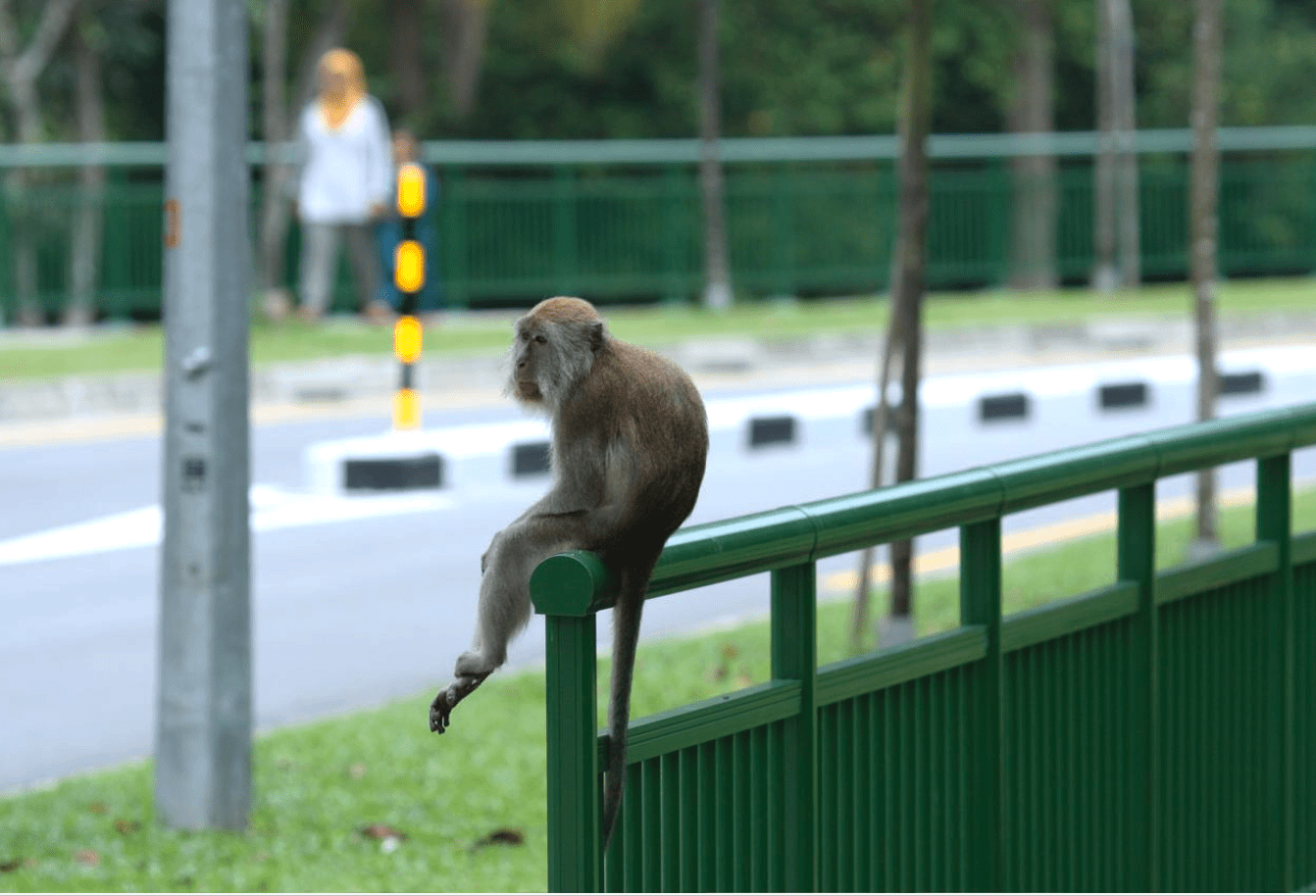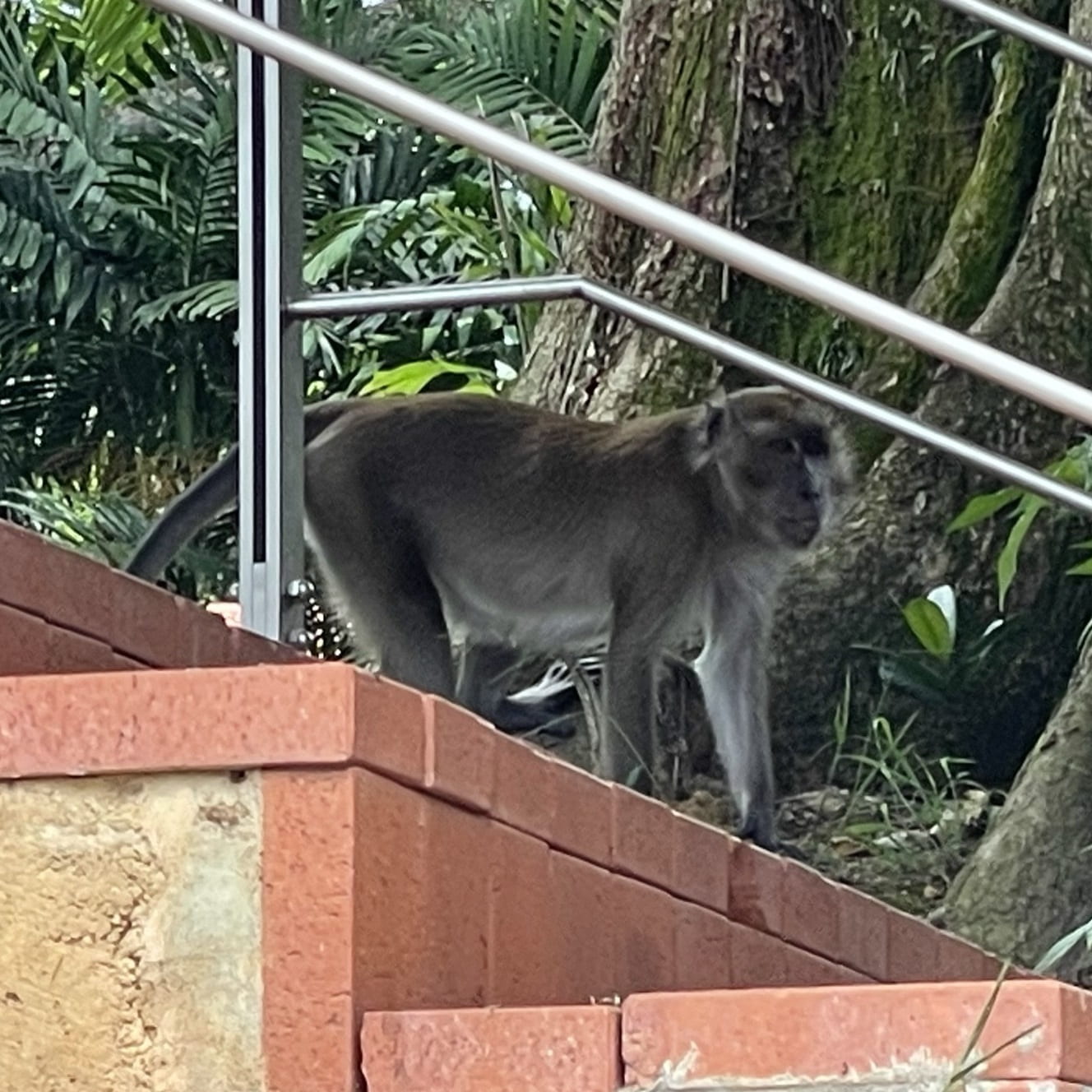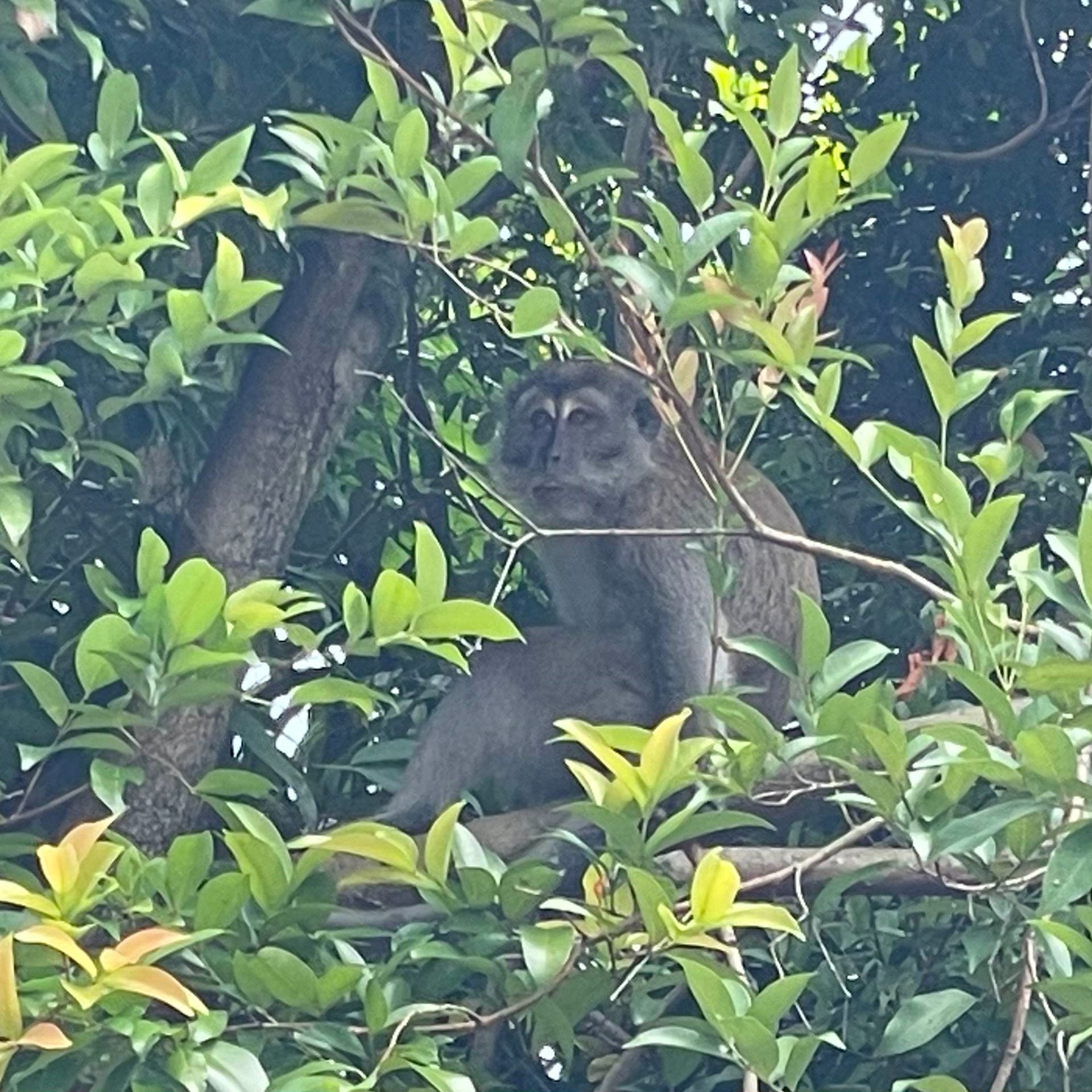NTU, a haven of wildlife, brings friends of all stripes and species. NTU primatologist Assoc Prof Michael D Gumert sheds light on what to do when macaques get a little too close for comfort
by Sean Shagaran / Photos by Assoc Prof Michael D Gumert

Long-tailed macaques have been seen at Halls 9 and 10, spotted having a meal near the campus McDonald’s, and even filmed stealing bread from the North Spine bakery.
While many assumed the COVID-19 “lockdown” led to a boom in the local macaque population, Assoc Prof Gumert says the mammals were simply exhibiting their natural behaviour. “It is normal for male longtailed macaques to emigrate from their natal groups to new areas in search of new groups to join.”
“Adolescent males, comparable to college-aged guys, leave home to make their way in the world. They eventually move on to join a group of females when they are strong enough and ready.”
“The ones spotted on campus might have left the nearby forests for NTU. This will happen again, Circuit Breaker or not,” notes Assoc Prof Gumert, who explains that these animals naturally explore spaces, urban or otherwise, and that males will go in and out of groups throughout their entire life.
“Macaques can move to new areas, whether people are around or not, and often prefer a human-populated place, as that equals high quality food.”
So what should you do if you encounter one of these visitors?
Scenario 1
“A macaque entered my room through an open window. What should I do?”
Nothing. According to Assoc Prof Gumert, the safest reaction is no reaction. Stay calm, do not make any sudden movements and simply let nature take its course. If you are afraid of being attacked, you should call for help, possibly from campus security or anyone who is more comfortable with macaques.
“Most of the time, they’re interested in something other than you. You think it’s looking at you, but its attention could be on something else, like your snacks, for example.”
Don’t look a macaque in the eye, as it could be perceived as aggression. Remember that once a macaque is no longer interested in something, it will leave it alone. In this case, the macaque will probably leave your room when its curiosity is satisfied.
Scenario 2
“I think the macaque tailing me is after my bag of food. Should I run from it?”
Do not run. Your best course of action would be to either conceal the bag of food or discard it. In most cases, the macaque is following you because it knows or thinks you’re carrying food, so it would be best to give up that nice supper for the sake of your safety.
Learn to get along
Assoc Prof Gumert admits there’s no foolproof method of handling primate encounters. Try to understand the animals better, he suggests. “They’re almost like little people with personalities of their own, and maybe that’s one of the things we can think about. The more you pay attention to them and learn their mannerisms, the better you can predict what they will do.”
“They’re just living comfortably alongside us, whereas we may see it as a problem,” he adds. The macaques have simply become accustomed to sharing their living space with humans and are indifferent to our presence. “Develop a certain level of familiarity with these animals like you do with other people or your pets. If you’re at ease when they’re around, then there’s less likely to be a problem.”
Meet the macaques of NTU
Another long-tailed macaque seen hanging out in its natural habitat across Hall 2.
Quick tips
1. Don’t leave food lying around in your hall room.
2. Since macaques associate plastic bags with food, quickly hide your bag as soon as you see a macaque in your path (and preferably before it spots you since it’s always better to proactively move out of a possible encounter).
3. Be aware of wildlife when walking outside (instead of constantly looking down at your phone). Boars and the occasional snake have been spotted at the campus periphery as well.
This story was published in the Aug-Sep 2021 issue of HEY!. To read it and other stories from this issue in print, click here.




